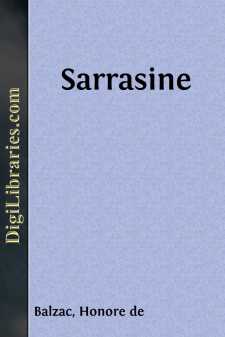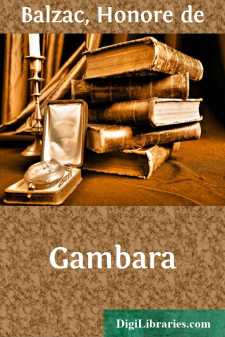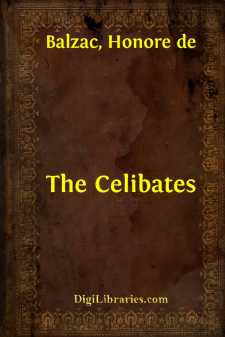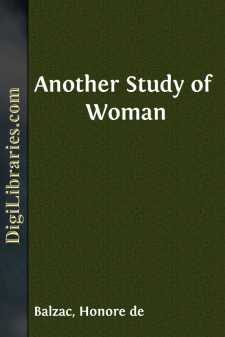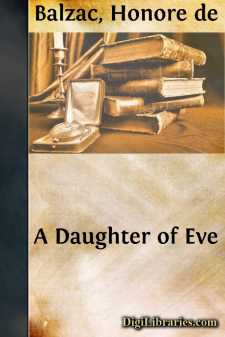Categories
- Antiques & Collectibles 13
- Architecture 36
- Art 48
- Bibles 22
- Biography & Autobiography 813
- Body, Mind & Spirit 142
- Business & Economics 28
- Children's Books 17
- Children's Fiction 14
- Computers 4
- Cooking 94
- Crafts & Hobbies 4
- Drama 346
- Education 46
- Family & Relationships 57
- Fiction 11829
- Games 19
- Gardening 17
- Health & Fitness 34
- History 1377
- House & Home 1
- Humor 147
- Juvenile Fiction 1873
- Juvenile Nonfiction 202
- Language Arts & Disciplines 88
- Law 16
- Literary Collections 686
- Literary Criticism 179
- Mathematics 13
- Medical 41
- Music 40
- Nature 179
- Non-Classifiable 1768
- Performing Arts 7
- Periodicals 1453
- Philosophy 64
- Photography 2
- Poetry 896
- Political Science 203
- Psychology 42
- Reference 154
- Religion 513
- Science 126
- Self-Help 84
- Social Science 81
- Sports & Recreation 34
- Study Aids 3
- Technology & Engineering 59
- Transportation 23
- Travel 463
- True Crime 29
Sort by:
by:
Honore de Balzac
ALMAE SORORI In the year 1308 few houses were yet standing on the Island formed by the alluvium and sand deposited by the Seine above the Cite, behind the Church of Notre-Dame. The first man who was so bold as to build on this strand, then liable to frequent floods, was a constable of the watch of the City of Paris, who had been able to do some service to their Reverences the Chapter of the Cathedral;...
more...
by:
Honore de Balzac
SARRASINE I was buried in one of those profound reveries to which everybody, even a frivolous man, is subject in the midst of the most uproarious festivities. The clock on the Elysee-Bourbon had just struck midnight. Seated in a window recess and concealed behind the undulating folds of a curtain of watered silk, I was able to contemplate at my leisure the garden of the mansion at which I was passing...
more...
by:
Honore de Balzac
GAMBARA New Year's Day of 1831 was pouring out its packets of sugared almonds, four o'clock was striking, there was a mob in the Palais-Royal, and the eating-houses were beginning to fill. At this moment a coupe drew up at the perron and a young man stepped out; a man of haughty appearance, and no doubt a foreigner; otherwise he would not have displayed the aristocratic chasseur who attended...
more...
by:
Honore de Balzac
Les Celibataires, the longest number of the original Comedie Humaine under a single title, next to Illusions perdues, is not, like that book, connected by any unity of story. Indeed, the general bond of union is pretty weak; and though it is quite true that bachelors and old maids are the heroes and heroines of all three, it would be rather hard to establish any other bond of connection, and it is...
more...
by:
Honore de Balzac
PREFACE This little Parisian silhouette in prose was written by Balzac to be the first chapter of a new series of the "Comedie Humaine" that he was preparing while the first was finishing. Balzac was never tired. He said that the men who were tired were those who rested and tried to work afterwards. "A Street of Paris and its Inhabitant" was in its author's mind when Hetzel,...
more...
by:
Honore de Balzac
THE FIRM OF NUCINGEN You know how slight the partitions are between the private rooms of fashionable restaurants in Paris; Very's largest room, for instance, is cut in two by a removable screen. This Scene is not laid at Very's, but in snug quarters, which for reasons of my own I forbear to specify. We were two, so I will say, like Henri Monnier's Prudhomme, "I should not like to...
more...
by:
Honore de Balzac
ANOTHER STUDY OF WOMAN At Paris there are almost always two separate parties going on at every ball and rout. First, an official party, composed of the persons invited, a fashionable and much-bored circle. Each one grimaces for his neighbor's eye; most of the younger women are there for one person only; when each woman has assured herself that for that one she is the handsomest woman in the room,...
more...
by:
Honore de Balzac
CHAPTER I. THAT WHICH WAS LACKING TO PIERROTIN'S HAPPINESS Railroads, in a future not far distant, must force certain industries to disappear forever, and modify several others, more especially those relating to the different modes of transportation in use around Paris. Therefore the persons and things which are the elements of this Scene will soon give to it the character of an archaeological...
more...
by:
Honore de Balzac
CHAPTER I. THE TWO MARIES In one of the finest houses of the rue Neuve-des-Mathurins, at half-past eleven at night, two young women were sitting before the fireplace of a boudoir hung with blue velvet of that tender shade, with shimmering reflections, which French industry has lately learned to fabricate. Over the doors and windows were draped soft folds of blue cashmere, the tint of the hangings, the...
more...
by:
Honore de Balzac
THE RECRUIT At times they saw him, by a phenomenon of vision or locomotion,abolish space in its two forms of Time and Distance; the formerbeing intellectual space, the other physical space. Intellectual History of Louis Lambert. On an evening in the month of November, 1793, the principal persons of Carentan were assembled in the salon of Madame de Dey, where they met daily. Several circumstances which...
more...



